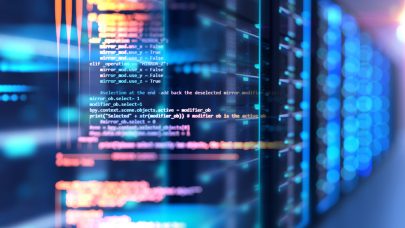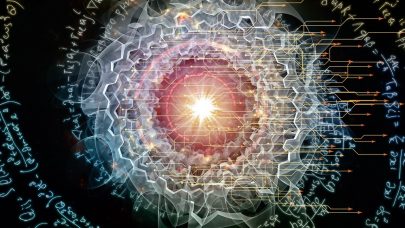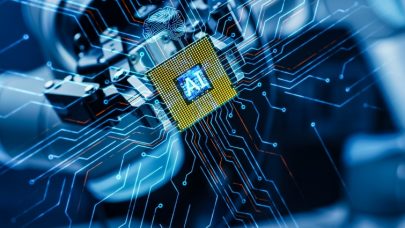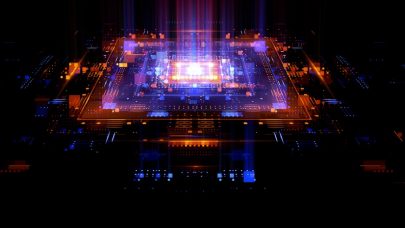Oct. 24, 2024 — When NCSA’s partner, the Center for Digital Agriculture (CDA), formed more than five years ago, it put a heavy emphasis on artificial intelligence and machine learning (AI/ML) long before ChatGPT brought the idea of AI as a useful tool to the masses. Throughout the last five years, CDA has implemented a number of programs, internships, training and projects dedicated to improving agriculture through AI.

CDA champions the work of bringing AI to agriculture, in large part because AI has the potential to transform farming as we know it. John Reid, the director of CDA, recently published an article in Resource Magazine. In his article, he writes about how AI has contributed to greater precision in farming which has already led to a number of improvements by, for example, increasing farmers’ adaptability in contending with changing weather conditions. Reid writes, “In the coming years, AI will dramatically improve our farming practices to increase productivity, address labor shortages, and improve resource efficiency.”
Here are just a few recent highlights of the ways in which CDA is making agriculture smarter.
AI Foundry for Agriculture Applications
This short course, organized by Christina Tucker, CDA’s director of operations and associate director of education, is aimed at graduate students and postdocs from any major. This year, registration was also open to other professionals from industry and academia. While participants don’t need to have experience in agriculture or machine learning, they do need at least introductory coding experience since the course uses Python in lessons and activities.
Participants can expect to complete the course with an increased ability to engage in conversations and idea generation for AI applications, as well as implement existing learning models in basic computer vision applications. During the one-week course, participants engage with professors through online lectures and virtual activities.
The topics covered in the course feature AI and machine learning in agriculture applications. Isabella Condotta, an assistant professor in the Animal Sciences department, teaches the morning sessions that focus on AI/ML with all registered participants. In the afternoon participants get to pick a track based on their interest and explore applications in livestock production with Angela Green-Miller from the agricultural & biological engineering department, or applications in crop production with Grainger College of Engineering professor Sunoj Shajahan.

Tucker also coordinates the CDA Research Experience for Undergraduates (REU) program which hosts a number of students working on AI projects each year. The REU program mentors students from a variety of majors, even those with little to no experience in agriculture, helping them discover their own keen interest in digital agriculture. Having grown up on a farm, agriculture has always been a part of Tucker’s life and passion – one she shares with students in the programs she leads.
In the first three years of the program, the foundry has provided training to over 160 participants from all over the world. This annual course takes place each summer, and you can find further details about it here.
AI for Agriculture Summit
This visioning conference took place in late July. The conference brought together a number of experts in AI and Agriculture to discuss the use of AI challenges and the fertile ground agriculture holds for addressing some of these challenges. Visioning conferences offer experts the time and opportunity to meet with their peers to discuss grand challenges and attempt to solve them or develop strategic plans for addressing them.
In the short term, the AI for Agriculture Summit will produce a white paper with recommendations based on the event’s activities and discussions, but their long-term goal is to create something more advanced. According to the Summit website, the broad goal is “to develop a long-term technical vision and a comprehensive implementation strategy for the utilization of AI advances to tackle challenges facing U.S. and world agriculture.”
The conference convened researchers from all five AI-for-Agriculture Institutes, three NSF-funded national AI institutes, leading AI and agriculture researchers, AgTech industry leaders, nonprofit research foundations, and NSF and USDA representatives.
CDA’s Artificial Intelligence for Future Agricultural Resilience, Management and Sustainability (AIFARMS) is one of the many sponsors of this conference. Speakers included experts from universities across the U.S. as well as respected luminaries from the private sector. The conference was held at the National Academy of Sciences in Washington D.C. and was chaired by Jessica Wedow, the executive director for AIFARMS.
“As the conference chair, I am proud of the summit’s success. The AI for Agriculture Summit was the first step in developing a community to tackle global challenges facing the world of Agriculture,” said Wedow.
Wedow secured a USDA conference grant and Special Interest Group (SIG) funding from the AI Institutes Virtual Organization (AIVO) and led the joint committee of the conference program.
The opening comments given by Dionne Toombs, assistant director of USDA-NIFA, were a highlight of the summit. Following her opening, a series of sessions addressed research challenges within AI for Agriculture, with presentations from leading researchers in diverse research disciplines. During the first day, breakout groups were organized to discuss each topic in depth and gain the perspectives of all participants.
The second day of the event shifted to the theme of implementation. Speakers addressed the importance of including diverse groups, producers’ and growers’ needs and sustainability at the forefront of research and technology implementation. Summit sessions were recorded, and will be available soon on the AIFARMS website.
A group of researchers from the five institutes are writing a white paper outlining the current state, challenges and future of AI for Agriculture research. The paper will be distributed widely and published within the next year.
Annual AIFARMS Conference
Each year, AIFARMS holds an annual conference to showcase the research and collaborations with the National AI for Agriculture Institute. The 2024 conference featured the work from Year 4 of the Institute and was hosted at the Donald Danforth Plant Science Center, an AIFARMS partner, in St. Louis.

Matt Hudson, co-scientific director of CDA and the Environmental Resilience Thrust lead, gave the conference keynote. In his address, Hudson outlined the future of AI for crop improvement and plant breeding. Following the opening keynote, the graduate students and PIs of AIFARMS presented their advances in foundational AI and use-inspired research in crop development, soil science, and livestock management.
The conference concluded with a panel on “How will AI enable your research in the next five years?”. Janice Siegford from Michigan State University, Christopher Topp from the Danforth Center and Kris Hauser, a professor in the Siebel School of Computing and Data Science at the University of Illinois Urbana-Champaign (U. of I.) and an AIFARMS affiliate, participated in the panel moderated by Vikram Adve, the director of AIFARMS. The conference left the team and external attendees excited for the future of AIFARMS and its influence on the agriculture industry.
About Center for Digital Agriculture
The Center for Digital Agriculture (CDA) draws on Illinois’ historic land-grant pillars of agriculture and engineering to shape the future of the agriculture industry. The center brings together researchers, educators, industry and agricultural producers to transform how we feed and support a growing global population through innovative approaches. CDA also boasts a Master’s of Engineering in Digital Agriculture and six certificate programs that address the profound workforce shortage in this field by providing graduates and working professionals with in-depth knowledge and technical skills. CDA is a multidisciplinary effort at the University of Illinois Urbana-Champaign between the Grainger College of Engineering, the College of Agricultural, Consumer and Environmental Sciences, the National Center for Supercomputing Applications and the Institute for Genomic Biology. CDA also leads the Artificial Intelligence for Future Agricultural Resilience, Management, and Sustainability (AIFARMS) Institute which is supported by the USDA National Institute of Food and Agriculture and the National Science Foundation.
Source: Megan Meave Johnson, NCSA


































































